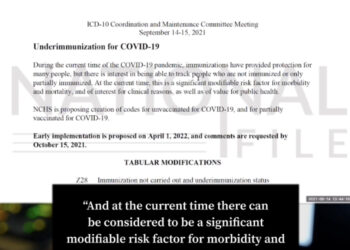Last Updated on April 17, 2020
State police in Kentucky and Mississippi collected license plate numbers of church attendants’ cars during Sunday services to enforce 14-day social distancing and “self quarantine” executive orders.
According to Kentucky’s Governor, Andy Beshear, if you made the choice to attend worship on one of the most holy days of the year, you need to stay home for at least 14 days following because it’s “not fair to those that you would spread it to.”
“We are down to less than seven churches statewide, because we don’t have any synagogues or mosques that are holding in-person services,” says Beshear.
“We absolutely cannot bring people together in one building like that.”
Taking license plates at church? Quarantining someone for being Christian on Easter Sunday? Someone needs to take a step back here.
Kentucky Governor Announces Plan to Record License Plates of Easter Church Goers and Force Them to Quarantine for 14 Days https://t.co/z7U42liQRh
— Rand Paul (@RandPaul) April 11, 2020
“I hear people say, ‘It’s my choice.’ Well, it’s not the person next to you’s choice.”
Beshear continues, “this is the only way that we can ensure that your decision doesn’t kill somebody else, that your decision doesn’t spread the coronavirus in your county and in your community.”
What the actual hell?
“Democrat Kentucky Governor Announces Plan to Record License Plates of Easter Church Goers and Force Them to Self-Quarantine for 14 Days”https://t.co/p6bAR8U3M2
— Thomas Massie (@RepThomasMassie) April 11, 2020
In addition to collecting the license plates of church goers, The Kentucky Governor Beshear signed an executive orer for anyone traveling into the state of Kentucky that mandates they also “self isolate” for 14 days, or the most commonly agreed upon period of time the virus could remain symptom free in an individual.
“We have to make sure we don’t have folks that are traveling in, staying two days and leaving, because that frustrates everything we are trying to do right now,” Beshear said.
This executive order does not apply to those who are traveling through Kentucky, only those who stay for an extended duration.
Beshear even restricted non-essential travel into Tennessee due to the higher rates of infection compared to Kentucky. Essential travel includes work, assistance of someone immune compromised, and food stores.
“We have taken very aggressive steps to try to stop or limit the spread of the coronavirus to try to protect our people, but our neighbors from the south, in many instances, are not,” says Beshear.





















